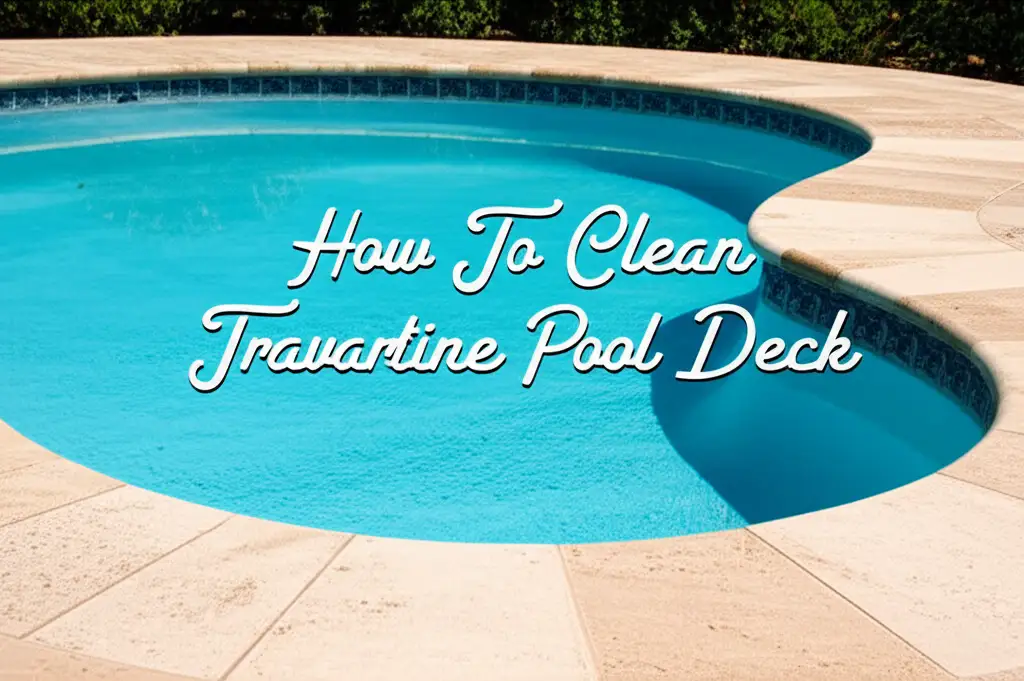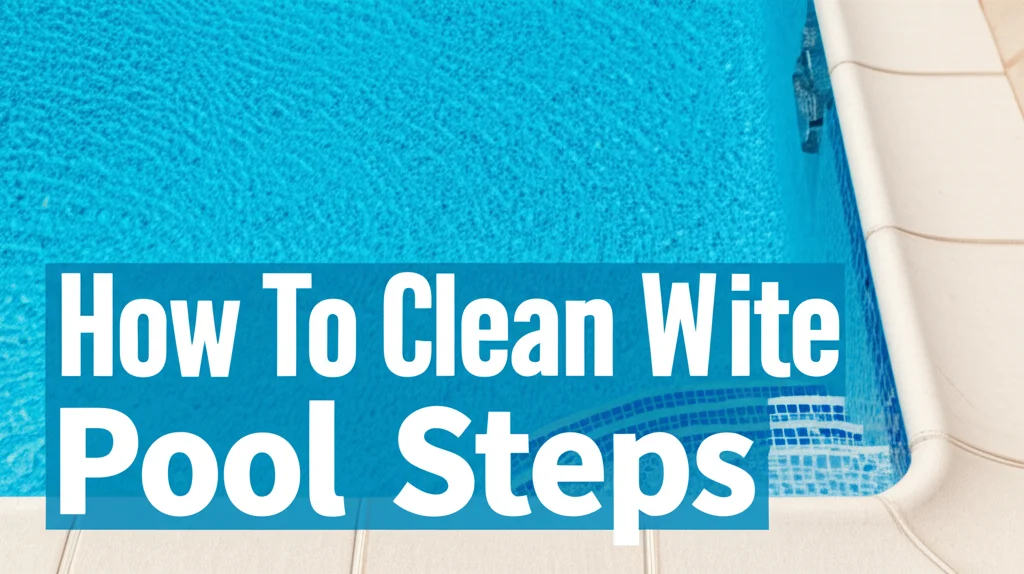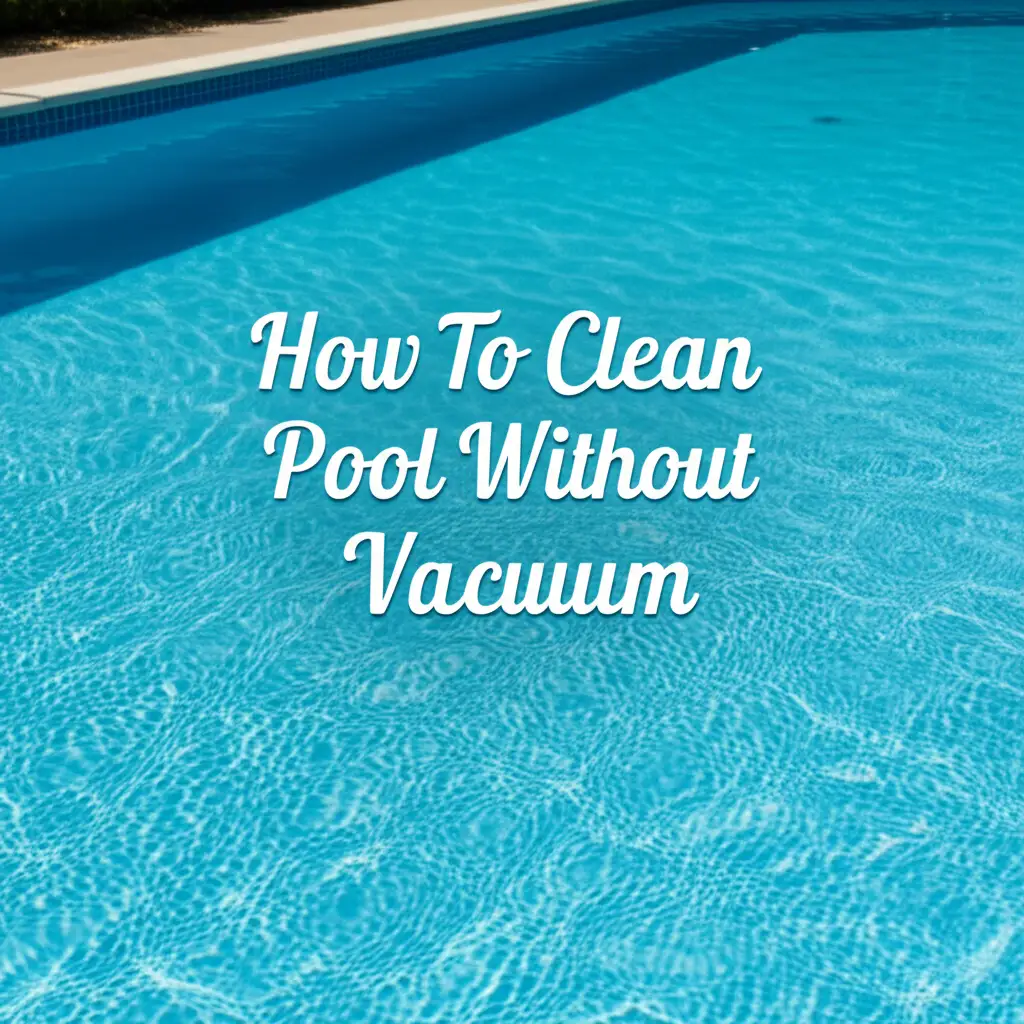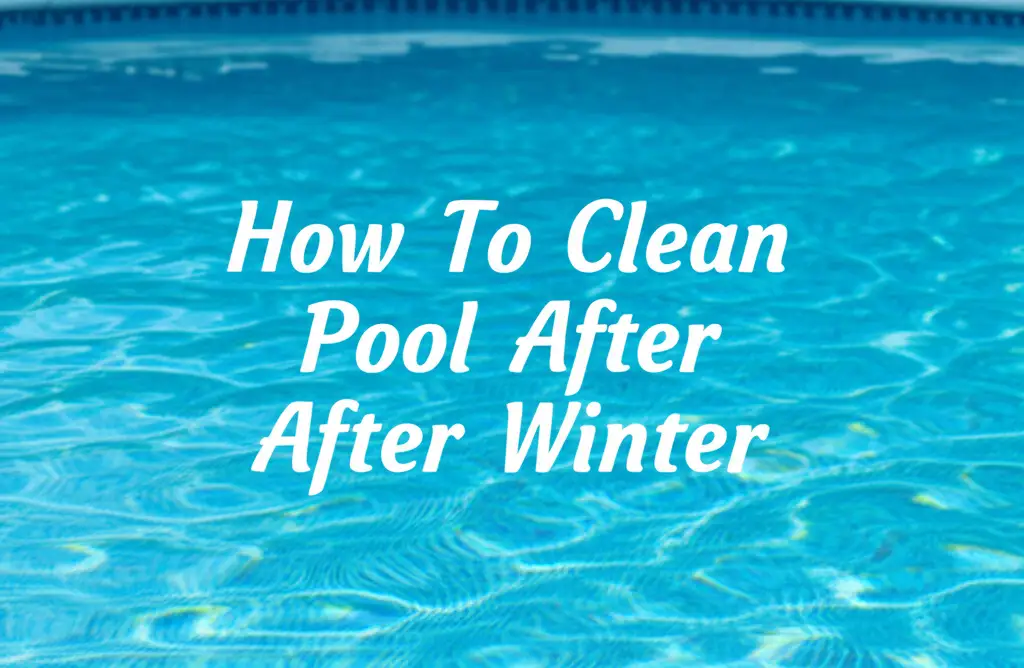· Pool Maintenance · 19 min read
How To Clean Concrete Pool Deck
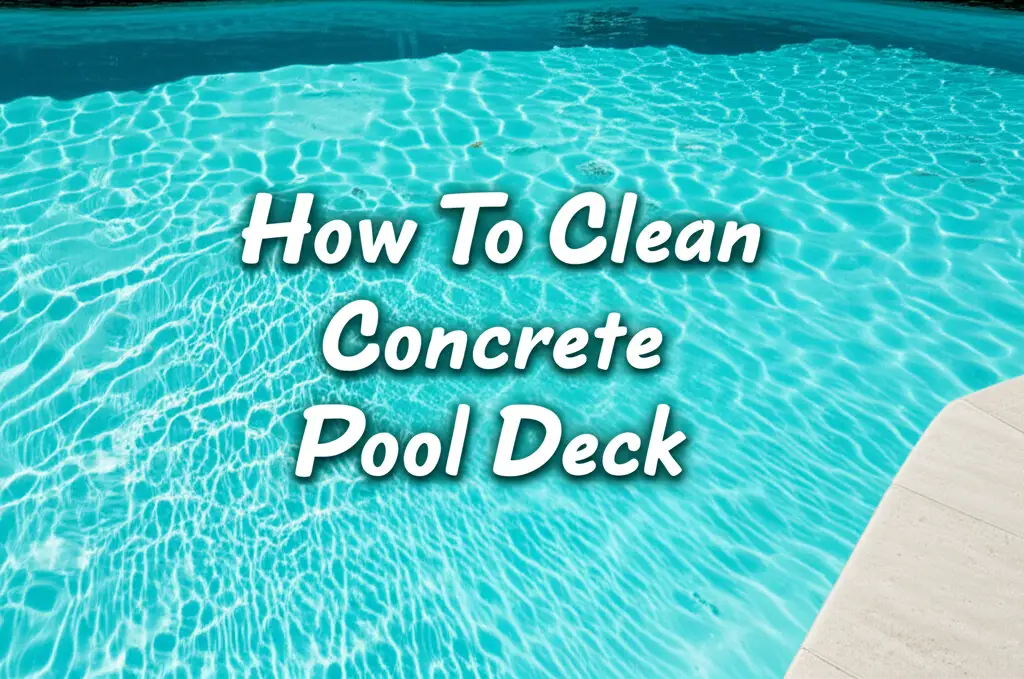
Effortless Cleaning: How To Clean Concrete Pool Deck
A clean pool deck makes your outdoor space feel inviting. It provides a safe, beautiful area for everyone to enjoy. However, concrete pool decks face constant exposure to sun, water, dirt, and chemicals. This exposure leads to stains, mold, and grime. Keeping your concrete pool deck spotless is important for aesthetics and safety.
I know how frustrating a dirty pool deck can be. Nobody wants to step out of a refreshing pool onto a grimy surface. This article will show you exactly how to clean concrete pool deck surfaces effectively. We will cover preparation, gentle cleaning methods, tough stain removal, power washing tips, and effective maintenance. You will learn practical steps to restore your pool deck’s sparkle and keep it looking great.
Takeaway
- Prepare Your Area: Clear debris and protect nearby plants and your pool water before you start cleaning.
- Start Gentle: Use basic soap and water or natural cleaners for routine dirt and light grime.
- Target Stains: Identify specific stains like algae, mold, or rust and use appropriate treatments.
- Power Wash Safely: Use a pressure washer correctly, choosing the right nozzle and pressure setting to avoid damage.
- Maintain Regularly: Implement a cleaning schedule and consider sealing your deck for long-term protection.
To clean concrete pool deck surfaces, first clear debris and wet the area. Then, apply a suitable cleaner based on the type of dirt or stain. Scrub problem spots, rinse thoroughly, and consider power washing for deeper cleaning. Always prioritize safety and protect your pool water from cleaning solutions.
Get Ready: Preparing Your Concrete Pool Deck for Cleaning
Before you begin to clean concrete pool deck, proper preparation is essential. Taking time for these steps protects your pool, landscaping, and yourself. It also makes the cleaning process much more efficient. Skipping these first steps can lead to extra work or even damage.
Start by removing everything from your concrete pool deck. This includes furniture, potted plants, toys, and any other items. A clear deck gives you unrestricted access to the entire surface. It also prevents these items from getting in the way or becoming damaged by water and cleaning solutions. Moving them allows you to clean under them as well.
Next, sweep the entire pool deck thoroughly. Use a stiff-bristled broom to remove loose dirt, leaves, sand, and other debris. Pay attention to corners and cracks where debris often collects. This sweeping prevents loose particles from turning into muddy messes once wet. It also ensures your cleaning solutions can directly reach the concrete surface.
After sweeping, give the deck a good rinse with a garden hose. This initial rinse helps to loosen surface dirt further. It also reveals any stubborn stains that might be hidden under a layer of dust. A pre-wet deck also helps cleaning solutions spread more evenly and prevents them from drying too quickly. Make sure to rinse debris away from your pool whenever possible.
Protecting your pool water is crucial when you clean concrete pool deck. Cleaning solutions, especially stronger ones, can upset your pool’s chemical balance. Some chemicals are harmful to pool liners or equipment. Drape plastic sheeting or tarps over your pool’s edge, creating a barrier between the deck and the water. Secure the tarps with weights or clamps to prevent them from falling in.
Also, protect nearby plants and landscaping. Many cleaning solutions, even mild ones, can harm delicate plants. If you use stronger chemicals, dilute them or rinse plants immediately if they get overspray. Consider covering sensitive plants with plastic sheets. You can also pre-soak the soil around plants with plain water. This helps to dilute any chemical runoff that might reach their roots. Taking these protective measures ensures a safe and effective cleaning experience.
Simple Solutions: Everyday Cleaning for Concrete Pool Deck Dirt
Most of the time, you do not need harsh chemicals to clean concrete pool deck surfaces. Everyday dirt, dust, and light grime respond well to simple, readily available cleaners. Regular basic cleaning prevents dirt from building up and becoming tough stains. This approach is also safer for your family, pets, and the environment.
A classic method involves warm water and a mild detergent. Dish soap works wonderfully for general dirt and light grease. Mix a few squirts of dish soap into a bucket of warm water. You want enough soap to create some suds, but not so much that it becomes difficult to rinse. This gentle solution breaks down common grime without damaging the concrete. It is also safe to use around your pool area.
Apply the soapy water generously over a section of your concrete pool deck. Use a stiff-bristled brush or a push broom to scrub the surface. Apply firm pressure in a circular motion to loosen embedded dirt. For textured concrete, a good scrub is key to reaching into all the nooks and crannies. You will see the dirt lifting as you scrub.
For areas with a bit more stubborn grime, consider using white vinegar. White vinegar is a natural acid that helps dissolve mineral deposits and light mildew. Mix equal parts white vinegar and water in a spray bottle or a bucket. Apply this solution to the affected areas. Let it sit for about 10-15 minutes to allow the vinegar to work its magic.
After letting the vinegar solution sit, scrub the area again with your brush or broom. You will find that dirt and light stains come off more easily. The mild acidity of vinegar makes it effective without posing a significant risk to your concrete. It also helps to naturally deodorize the deck. This is a great choice for light green or black spots caused by early mildew growth.
Once you have scrubed, rinse the entire cleaned section thoroughly with a garden hose. Make sure to wash away all soap suds and loosened dirt. Overlapping your rinsing ensures no residue is left behind. Let the deck air dry completely to see the full results of your cleaning efforts. This simple, regular cleaning keeps your concrete pool deck looking fresh and inviting all season long. It prevents the need for more intensive cleaning later.
Conquering Stains: Specific Treatments for Concrete Pool Deck Issues
A general scrub might not be enough for tough stains on your concrete pool deck. Different types of stains require specific approaches. Identifying the stain type is the first step. Then you can choose the right cleaning agent to effectively remove it. I’ve encountered all sorts of stains on concrete, and specific targeting always works best.
Algae and mold are common problems on concrete pool decks, especially in shaded or damp areas. They create unsightly green or black patches and make the surface slippery. A good solution for these is oxygen bleach. Oxygen bleach is different from chlorine bleach; it is safer for concrete and plants. Mix oxygen bleach powder with warm water according to package directions. Apply this solution to the affected areas. Let it soak for 20-30 minutes, or even longer for heavy growth. Then, scrub vigorously with a stiff brush and rinse well. For persistent bird droppings which can encourage mold, learn how to clean bird poop off concrete to tackle them quickly.
Rust stains often appear from metal furniture or forgotten tools left on the deck. These orange or reddish marks can be challenging. For light rust, a paste of lemon juice and salt can work. Apply the paste, let it sit for a few hours, then scrub and rinse. For heavier rust stains, you may need a specialized rust remover designed for concrete. Follow product instructions carefully. Some rust removers contain oxalic acid, which is effective but requires caution. Remember that any spills of paint can also cause permanent staining, so consult guides on how to clean paint off concrete if you have any paint issues.
Oil and grease stains come from spills during outdoor cooking or mechanical work. These stains penetrate concrete easily. For fresh oil stains, sprinkle absorbent material like cat litter or cornstarch on top. Let it sit for several hours or overnight to soak up the oil. Sweep up the absorbent material. For older, set-in oil stains, you will need a degreaser formulated for concrete. Apply the degreaser, scrub, and rinse. Sometimes, repeated applications are necessary. You can gain insights from how professionals handle engine oil off concrete for severe cases.
Leaf and berry stains leave dark, organic marks. These are common if leaves sit wet on the deck for too long. Oxygen bleach, as mentioned for algae, is also effective here. Another option is a strong solution of hot water and laundry detergent. Scrub the stained areas thoroughly. For really tough organic stains, a poultice made from baking soda and hydrogen peroxide can draw the stain out. Apply the thick paste, cover it with plastic wrap, and let it dry completely before scraping it off. Always rinse well after any stain treatment.
Power Washing Your Concrete Pool Deck: The Right Way
Power washing is an excellent method for deep cleaning concrete pool deck surfaces. It effectively removes stubborn dirt, grime, algae, and some stains. However, using a pressure washer requires care. Incorrect use can damage your concrete or cause injury. I always recommend caution and proper technique when handling one.
First, select the right pressure washer and nozzle. For concrete, a pressure washer with at least 2000 PSI (pounds per square inch) is ideal. Use a wide-angle nozzle, such as a 25-degree or 40-degree tip. A wider spray pattern distributes the pressure more evenly. Never use a zero-degree (red) nozzle on concrete. This highly concentrated stream can etch or permanently damage the surface. It can also create an uneven appearance.
Before you start, make sure you are wearing appropriate safety gear. This includes safety glasses to protect your eyes from debris. Closed-toe shoes with good grip are also important, as the deck will be wet and potentially slippery. Gloves protect your hands from the high-pressure spray and any cleaning solutions. Always keep pets and children away from the work area.
Hold the pressure washer wand at an angle, about 12-18 inches from the concrete surface. This distance allows the water to spread out before hitting the concrete, reducing the risk of damage. Always start with a lower pressure setting if your machine allows it. You can increase the pressure gradually if needed. Test a small, inconspicuous area first. This helps you find the right balance between cleaning power and safety for your specific concrete.
Use smooth, overlapping strokes as you clean the concrete pool deck. Work in small sections, moving the wand consistently back and forth. Avoid stopping in one spot, as this can leave visible marks or strip the concrete’s top layer. Overlapping your strokes ensures even cleaning and prevents “zebra stripes.” Keep the wand moving at a steady pace. You should see the dirt lifting away as you pass over it.
For areas with very heavy buildup or deeply embedded grime, you might need to use a concrete cleaner designed for pressure washers. Apply the cleaner through the pressure washer’s detergent tank or directly to the surface. Let it dwell for the recommended time before rinsing. Rinse the concrete thoroughly, working from the highest point down. Ensure all detergent residue is completely washed away. This prevents slippery film or chemical stains. Proper technique ensures your power washing job is effective and safe.
Choosing the Best Cleaners for Your Concrete Pool Deck
When simple scrubbing or power washing alone isn’t enough, you will need to choose the right cleaning solution for your concrete pool deck. The market offers many products, each designed for specific cleaning challenges. Selecting the correct cleaner ensures effectiveness without causing harm. My experience shows that matching the cleaner to the problem is key.
Commercial concrete cleaners are formulated to tackle a range of common issues. These products often contain degreasers, surfactants, and sometimes mild acids or alkalis. They are effective against general dirt, oil, grease, and some organic stains. When using a commercial cleaner, always read the manufacturer’s instructions carefully. Pay attention to dilution ratios and application methods. Many commercial cleaners require a dwell time before scrubbing and rinsing. Always choose a product that states it is safe for concrete. For general concrete cleaning, similar principles apply to cleaning garage concrete floor, so those cleaners can also be a good reference.
Oxygen bleach, also known as sodium percarbonate, is an excellent choice for organic stains. This includes algae, mold, mildew, moss, and leaf stains. Oxygen bleach works by releasing oxygen when mixed with water. This oxygen helps to break down organic matter. It is a safer alternative to chlorine bleach for concrete surfaces. Chlorine bleach can discolor concrete and harm nearby plants. Mix oxygen bleach powder with warm water according to the product’s directions. Apply it to the stained area, let it sit, then scrub and rinse. It is very effective and environmentally friendly compared to other strong cleaners.
For severe stains like calcium buildup or very stubborn rust, a stronger acid-based cleaner might be necessary. Muriatic acid, or hydrochloric acid, is a powerful cleaner that dissolves mineral deposits and efflorescence. It also cleans heavily soiled concrete. However, muriatic acid is highly corrosive and dangerous. It should only be used as a last resort and with extreme caution. If you decide to use it, wear full protective gear: chemical-resistant gloves, safety goggles, and a respirator. Always dilute muriatic acid significantly with water according to instructions. Add the acid to water, never water to acid, to prevent dangerous splashing. Rinse thoroughly and neutralize the area with baking soda and water afterwards. You can refer to specific instructions on how to clean concrete with muriatic acid for safe application.
Enzymatic cleaners are an option for biological stains or odors caused by pet waste or food spills. These cleaners contain beneficial enzymes that “eat” organic matter. They are generally very safe for concrete and the environment. Apply enzymatic cleaners to the affected area and let them work. They often require longer dwell times to be effective. Always test any cleaner in an inconspicuous spot first. This checks for discoloration or damage before applying it to the entire concrete pool deck. Choosing the right cleaner is crucial for success.
Keep it Clean: Maintaining Your Concrete Pool Deck’s Sparkle
Cleaning your concrete pool deck is an important task. But maintaining its cleanliness afterwards is just as vital. Regular maintenance prevents heavy buildup and makes future cleanings much easier. A well-maintained deck looks great all season long. I find that prevention is always better than a cure for pool deck cleanliness.
Establishing a routine cleaning schedule is key. For most concrete pool decks, a light cleaning every few weeks is sufficient. This can involve sweeping away debris and hosing down the surface. This simple step prevents leaves, dirt, and pollen from settling in and causing stains. During heavy use periods, like summer, you might need to do this more often. A quick sweep takes only minutes but saves hours of deep cleaning later.
Spot cleaning immediately tackles fresh spills or minor issues. If someone spills a drink, or you notice a small patch of mold, address it right away. A simple mixture of dish soap and water often removes fresh stains easily. For a fresh bird dropping, a quick rinse with the hose usually does the trick. Prompt action prevents stains from setting in and becoming much harder to remove later. This proactive approach saves time and effort.
Consider applying a concrete sealer to your pool deck. A good quality sealer creates a protective barrier on the concrete surface. This barrier helps repel water, oil, and other contaminants. It makes the concrete less porous, which means dirt and stains cannot penetrate as deeply. Sealing makes cleaning much easier because spills sit on the surface instead of soaking in. It also helps protect the concrete from UV damage and freeze-thaw cycles, extending its lifespan.
There are different types of concrete sealers, including acrylic, epoxy, and penetrating sealers. Acrylic sealers provide a clear, often glossy finish and are easy to apply. Penetrating sealers soak into the concrete, offering protection without changing its appearance. Choose a sealer designed for outdoor concrete and specifically for pool decks, ensuring it offers good slip resistance. Follow the manufacturer’s instructions for application and reapplication frequency. Most sealers need reapplication every few years.
Finally, regularly check your pool deck for potential problem areas. Look for spots where water tends to pool, as these areas are prone to algae and mold growth. Trim back overhanging trees or shrubs that create excessive shade or drop debris. Ensure proper drainage around your deck. By staying vigilant and consistent with these maintenance practices, you can keep your concrete pool deck looking its best with minimal effort. This will help you enjoy your beautiful, clean outdoor space for years.
Safety First: Protecting Yourself and Your Pool When Cleaning
Cleaning your concrete pool deck involves water, chemicals, and potentially powerful equipment. Prioritizing safety is non-negotiable. Ignoring safety measures can lead to accidents, chemical exposure, or damage to your pool. I always make sure safety is the number one concern when tackling any cleaning project around water.
Always wear appropriate personal protective equipment (PPE). This includes safety glasses or goggles to shield your eyes from splashes and debris. Chemical-resistant gloves are essential when handling any cleaning solutions, even mild ones. They protect your skin from irritation or burns. Wear closed-toe shoes with good traction. The deck will be wet and slippery, and proper footwear prevents falls. If you are using strong chemicals or working in a poorly ventilated area, consider wearing a respirator to protect your lungs from fumes.
Chemical safety is paramount. Always read and follow the instructions on cleaning product labels. These labels provide important information on dilution, application, and safety precautions. Never mix different cleaning chemicals unless the product specifically states it is safe to do so. Mixing certain chemicals, like chlorine bleach and ammonia, can create dangerous fumes. Store all cleaning products in their original containers, out of reach of children and pets. Ensure the storage area is cool and dry. If you get chemicals on your skin or in your eyes, rinse immediately with plenty of water and seek medical attention if needed.
Protecting your pool water from cleaning solutions is crucial. As mentioned earlier, cover your pool with a tarp or plastic sheeting. This prevents cleaning chemicals, dirt, and debris from entering the pool water. Even small amounts of cleaning agents can throw off your pool’s chemical balance. This leads to cloudy water, algae growth, or damage to pool equipment. If any cleaning solution does get into the pool, test your pool water immediately. Adjust chemical levels as needed to restore balance. In some cases, you might need to shock the pool or run the filter for an extended period.
Be mindful of slip hazards. The concrete pool deck will be very wet during cleaning. Water, combined with cleaning solutions or loosened grime, makes surfaces incredibly slick. Walk slowly and deliberately. Avoid running or making sudden movements. If using a pressure washer, the high-pressure spray can create slippery conditions by moving water and debris. Be aware of your surroundings and any puddles. Ensure good drainage during and after cleaning to minimize standing water.
Finally, ensure good ventilation, especially when using strong chemicals in enclosed or semi-enclosed areas like covered patios. Work on a breezy day if possible. If you feel dizzy or lightheaded, stop immediately and get fresh air. Inform family members that you are cleaning the pool deck and to stay clear of the area. Taking these safety steps ensures a successful and risk-free concrete pool deck cleaning project.
FAQ Section
Q1: How often should I clean my concrete pool deck? A1: You should sweep and hose down your concrete pool deck weekly or bi-weekly. A deeper cleaning to remove stains and buildup is ideal once or twice a year. This frequency depends on your local climate, deck usage, and surrounding vegetation. Regular light cleaning prevents bigger issues.
Q2: Can I use chlorine bleach on my concrete pool deck? A2: While chlorine bleach kills mold and algae, it can damage concrete over time. It may also discolor the surface or harm nearby plants. I recommend using oxygen bleach instead. Oxygen bleach is safer for concrete and the environment.
Q3: What’s the best way to remove stubborn black mold from my concrete pool deck? A3: For black mold, use a solution of oxygen bleach and hot water. Apply it to the affected areas, let it soak for at least 30 minutes, then scrub thoroughly with a stiff brush. A pressure washer can also help rinse it away effectively. Ensure good ventilation.
Q4: Is power washing safe for all concrete pool decks? A4: Power washing is safe for most concrete pool decks if done correctly. Use a pressure washer with appropriate PSI (2000-3000 PSI) and a wide-angle nozzle (25 or 40 degrees). Keep the wand moving and at a safe distance. Avoid using too high pressure or a zero-degree nozzle, which can damage the concrete.
Q5: How can I prevent stains on my concrete pool deck after cleaning? A5: To prevent stains, sweep your concrete pool deck regularly to remove debris. Address spills immediately. Consider applying a high-quality concrete sealer. A sealer creates a protective barrier, making the concrete less porous and easier to clean in the future.
Q6: What should I do if cleaning chemicals get into my pool? A6: If cleaning chemicals enter your pool, test your pool water immediately for chemical balance. Adjust pH, alkalinity, and chlorine levels as needed. You may need to shock the pool or run the filter for an extended period to dilute and remove the contaminants.
Your Sparkling Concrete Pool Deck Awaits
A clean concrete pool deck makes a world of difference for your outdoor enjoyment. It enhances the beauty of your pool area and ensures a safe surface for everyone. We have covered every step needed to clean concrete pool deck effectively. From basic preparation to tackling tough stains, you now have the knowledge to achieve a pristine finish. Remember to prioritize safety always.
Maintaining your concrete pool deck is an ongoing process. Regular sweeping, immediate spot treatment, and considering a concrete sealer will keep your deck looking its best. Don’t let dirt and grime detract from your poolside paradise. Take action today. Grab your broom, gather your cleaning supplies, and start making your concrete pool deck shine. A sparkling clean deck is just a few steps away, ready for countless hours of summer fun!
- concrete pool deck
- pool deck cleaning
- concrete maintenance
- stain removal

